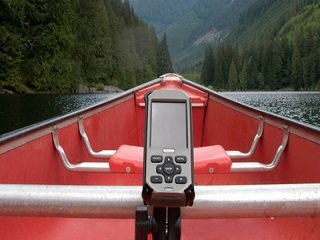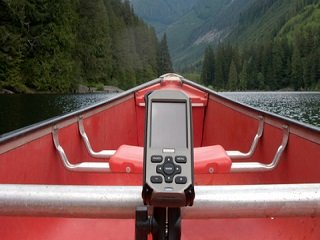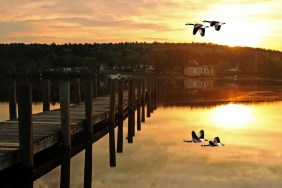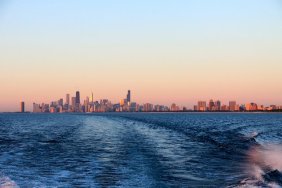 When it comes to the outdoors, unfamiliarity with your surroundings can be a little overwhelming and sometimes we get lost. While most associate getting lost with the deep woods, it’s actually quite common for anglers to get lost when fishing a new lake. In fact, I’ve heard many stories throughout the years of anglers running out of gas trying to find their way back to the ramp. Today, I’ve provided you with a few tips to prevent this from ever happening to you.
When it comes to the outdoors, unfamiliarity with your surroundings can be a little overwhelming and sometimes we get lost. While most associate getting lost with the deep woods, it’s actually quite common for anglers to get lost when fishing a new lake. In fact, I’ve heard many stories throughout the years of anglers running out of gas trying to find their way back to the ramp. Today, I’ve provided you with a few tips to prevent this from ever happening to you.
Landmarks
Some people aren’t good with street names and can tell you exactly how to get to their house or another place in their town by describing landmarks. The same can be said of fishing a new lake, especially since there are no street signs…because it’s a lake. It’s important to familiarize yourself with landmarks when going out on an unfamiliar body of water. A boat house, a large rock at the mouth of a creek, a strange tree or whatever you can use to mentally mark your location will help keep you orientated.
Electronics
With the technology of GPS units (global positioning system), it is a good idea to mark a waypoint at the ramp before heading out on the water. I know many anglers who’ve used theirs to find the exact location of the boat ramp after a long day of fishing on a new lake. Like flat-panel television, GPS units have become more affordable and user friendly since their introduction and there are a variety of models that can accommodate any budget.
Cell Phone
It is always a good idea to carry a cell phone with you in the boat, as it can be a lifesaver in the event of an emergency. Not only will it offer you peace of mind as a way to contact someone if you get lost, but they allow you to contact medical help if someone is injured. I have known more than one individual that has used their cell phone to call for help after witnessing an accident on the water. I know many of us fish to get away from disturbances like cell phones, but I urge you to not leave the phone in the truck. Take it with you and turn it off if you don’t want to be disturbed. That way if you need or want it, you can always turn it on.
Composure
Lastly, in the event you do become lost, the most important thing you can do is stay calm and not panic. Most lakes will have some place you can stop and ask for directions, such as a marina or another boat dock. Furthermore, fishermen tend to be friendly people, so you can always ease up to someone else on the water and ask for directions to the boat ramp.
Getting lost on an unfamiliar lake is more common that people think. The tips outlined above will go a long way towards allowing you more time to fish without worry, rather than wasting gas trying to find your way back to the ramp. Utilize electronics such as cell phones or GPS units, recognize landmarks on shore or in the water, and above all else, stay calm if you do get lost, and you’ll have a much more enjoyable day on the water.








